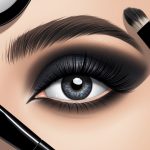How to Prevent Hair Loss Naturally: Tips, Remedies, and Products That Work
Managing Stress to Prevent Hair Fall
Stress can disrupt the normal hair cycle, leading to increased hair fall and thinning.
Managing stress with practical lifestyle changes, targeted relaxation techniques, and an understanding of its impact on hair can support healthier growth and reduce shedding.
Impact of Stress on Hair Cycle
Stress triggers hormonal responses that can disrupt the natural hair growth cycle.
High stress levels may push more hair follicles into the shedding (telogen) phase, resulting in noticeable hair loss known as telogen effluvium.
This disruption can occur after emotional stress, sudden life changes, or physical illness.
Chronic stress is especially harmful because it prolongs elevated cortisol, which affects other body systems, such as the liver, that play roles in hormone balance and nutrient absorption, both of which are necessary for healthy hair growth.
It is important to identify stressors and understand their effects on the body’s tissues, including the scalp and hair follicles.
Prolonged stress exposure can restrict blood flow to the scalp, further reducing nutrient delivery to hair roots and worsening hair fall.
Regularly addressing stress is essential for those hoping to prevent stress-induced hair loss.
Relaxation Techniques for Stress Reduction
Practicing relaxation techniques can lower stress levels and help normalize the hair growth cycle.
Deep breathing and meditation are evidence-based methods that activate the body’s relaxation response, reducing the impact of stress hormones.
Even ten minutes daily of mindful breathing or guided imagery can reduce tension and emotional strain.
Yoga and tai chi combine movement with breathing and focus, promoting both physical and mental relaxation.
Gentle scalp massage is another effective approach, which not only relieves stress but may also increase blood flow and nutrient delivery to hair follicles.
Individuals can also benefit from progressive muscle relaxation, which systematically releases muscle tension, promoting a sense of calm.
Limiting stimulating activities close to bedtime is recommended, as healthy sleep is closely linked to stress management and the body’s repair mechanisms, including those involved in the hair growth cycle.
Adopting these techniques may help reduce hair fall triggered by stress and support overall wellbeing.
Lifestyle Modifications for Lowering Stress Levels
Implementing lifestyle changes is a practical and sustainable way to keep stress in check and support hair health.
Regular exercise, such as brisk walking, cycling, or swimming, helps to regulate stress hormones and improves circulation, enhancing nutrient supply to the scalp.
A balanced, protein-rich diet that includes adequate iron, fatty acids, and antioxidants can support hormonal health and the body’s resilience to stress.
Foods like nuts, seeds, leafy greens, fish, and lean meats are beneficial for both the hair and the liver, which plays a role in detoxification and hormone regulation.
Structured daily routines, setting realistic goals, and taking breaks throughout the day help prevent chronic stress build-up.
Establishing a consistent sleep schedule and reducing screen time in the evening can also decrease stress levels and improve the body’s ability to repair hair follicles.
Counseling or support groups may be helpful for individuals facing persistent emotional stress, further reducing the likelihood of hair fall trends linked to anxiety or burnout.
More guidance on these strategies can be found in expert resources such as this medical guide on managing hair loss from stress.
Natural Remedies That Support Hair Growth
Natural remedies for hair loss and thinning hair target the scalp, hair follicles, and overall hair health.
Some rely on nourishing the scalp, while others strengthen hair strands or restore moisture and nutrients to promote healthy growth.
Aloe Vera for Hair and Scalp Care
Aloe vera is valued for its soothing properties and is a popular ingredient in natural scalp treatments. When applied directly to the scalp, aloe vera gel helps reduce itching, calms irritation, and removes sebum that can block hair follicles.
This plant contains enzymes and vitamins A, C, and E that are believed to promote healthy hair growth. Aloe vera also provides mild conditioning, leaving hair with improved texture and a healthy shine.
It’s versatile—people use it alone, blend with carrier oils, or add to homemade masks. For best results, aloe vera gel should be massaged into the scalp and left on for about 30 minutes before rinsing.
Its gentle nature makes it a preferred choice for those with sensitive skin or scalp conditions. More details are available on using aloe vera for hair and scalp care.
Egg Yolk Treatments for Thicker Hair
Egg yolk is considered a natural remedy for restoring hair strength and increasing hair density. It is rich in protein, biotin, and essential fatty acids that support hair structure and shaft integrity.
Applying egg yolk masks delivers nutrients that are essential for healthy follicles and can help reduce hair breakage. The lecithin in egg yolk is also an effective natural emollient, helping strands retain moisture and appear fuller.
A typical egg yolk treatment involves whisking one or two yolks, applying them to damp hair, and letting the mask sit for 20 minutes before rinsing with cool water. This traditional remedy is cost-effective and easily done at home, but should not be used more than once a week to avoid excess buildup.



